On September 13, 2025, under the framework of the China International Fair for Trade in Services (CIFTIS), the thematic forum "Building Smart Cities and Space Infrastructure in a Changing World" took place at Shougang Park in Beijing. The forum was co-hosted by Institute for Global Cooperation and Understanding, Peking University (iGCU) and Institute for Urban Internationalization Studies, Zhejiang International Studies University (ZISU), with joint support from Harbor Overseas, Center for Sciences & Technology Development and Governance, Tsinghua University, the School of Public Policy at The Chinese University of Hong Kong, Shenzhen, and the National Engineering Research Center for Geomatics. During the event, the "2025 BRICS Smart Cities Ranking" and the "2025 Global Space Infrastructure Review" were released, contributing a "China Framework" and "Action Guidelines" to the global development of smart cities and space infrastructure.
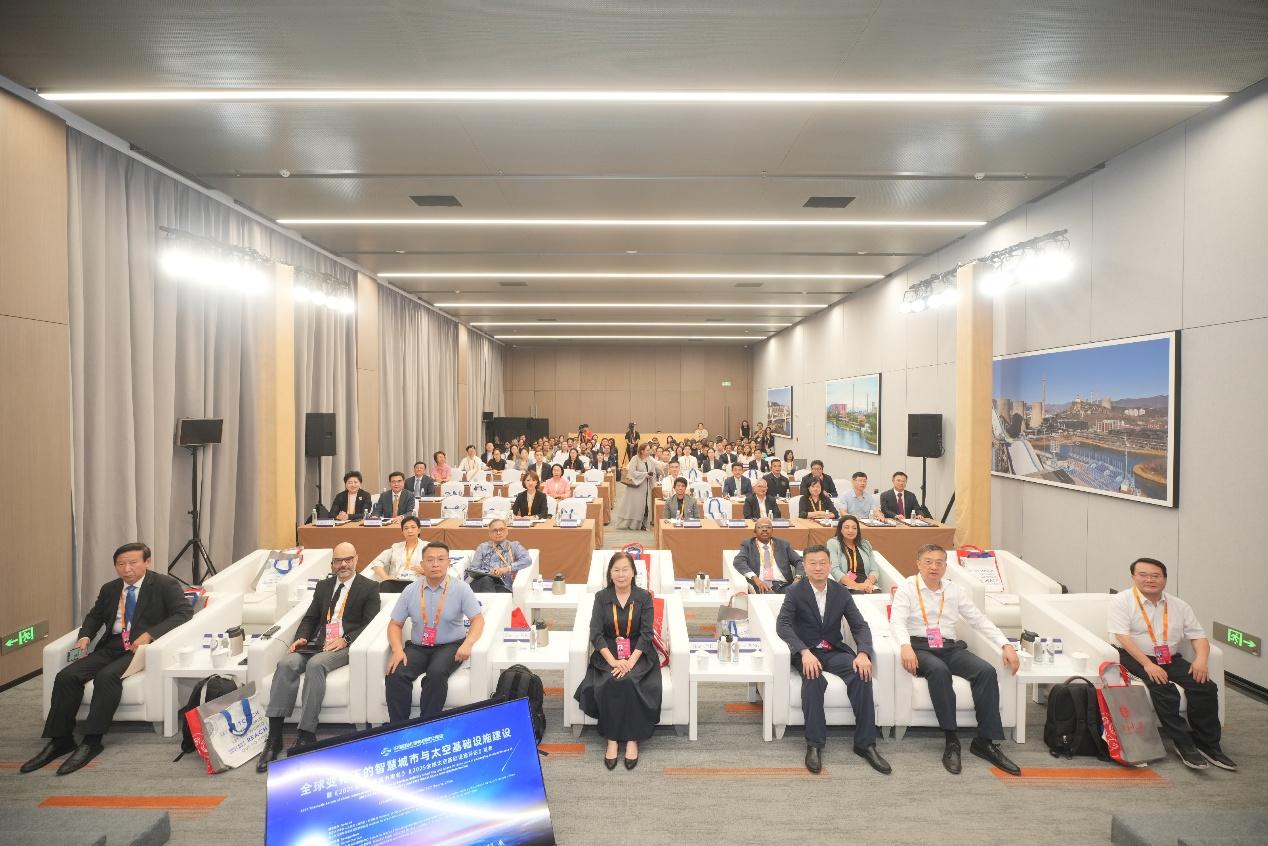
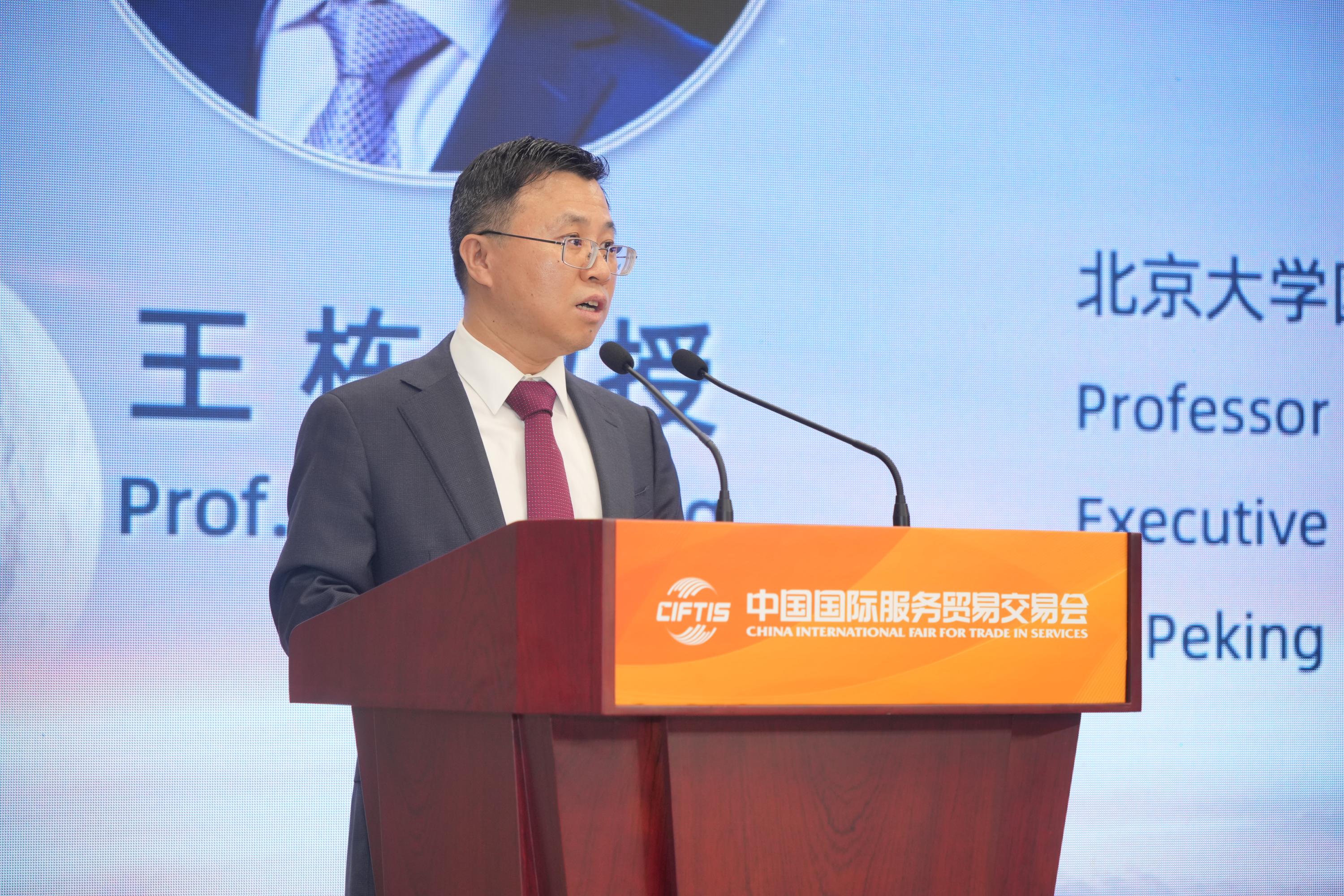
Professor Wang Dong, Full Professor with Tenure at School of International Studies, Peking University and Executive Director of the iGCU, chaired the meeting. He extended a warm welcome to high-level representatives from 42 economies worldwide, including ambassadors from ten countries to China and heads of international organizations, as well as leading domestic and international experts. Professor Wang emphasized that the theme of this year's CIFTIS—"Digital Intelligence Leads, Services Trade Rejuvenates"—highlights the significance of smart cities and space infrastructure not only for economic and social development and urban governance innovation but also for humanity’s collective confidence and wisdom in addressing global challenges. This era requires unprecedented cooperation and a commitment to win-win outcomes.
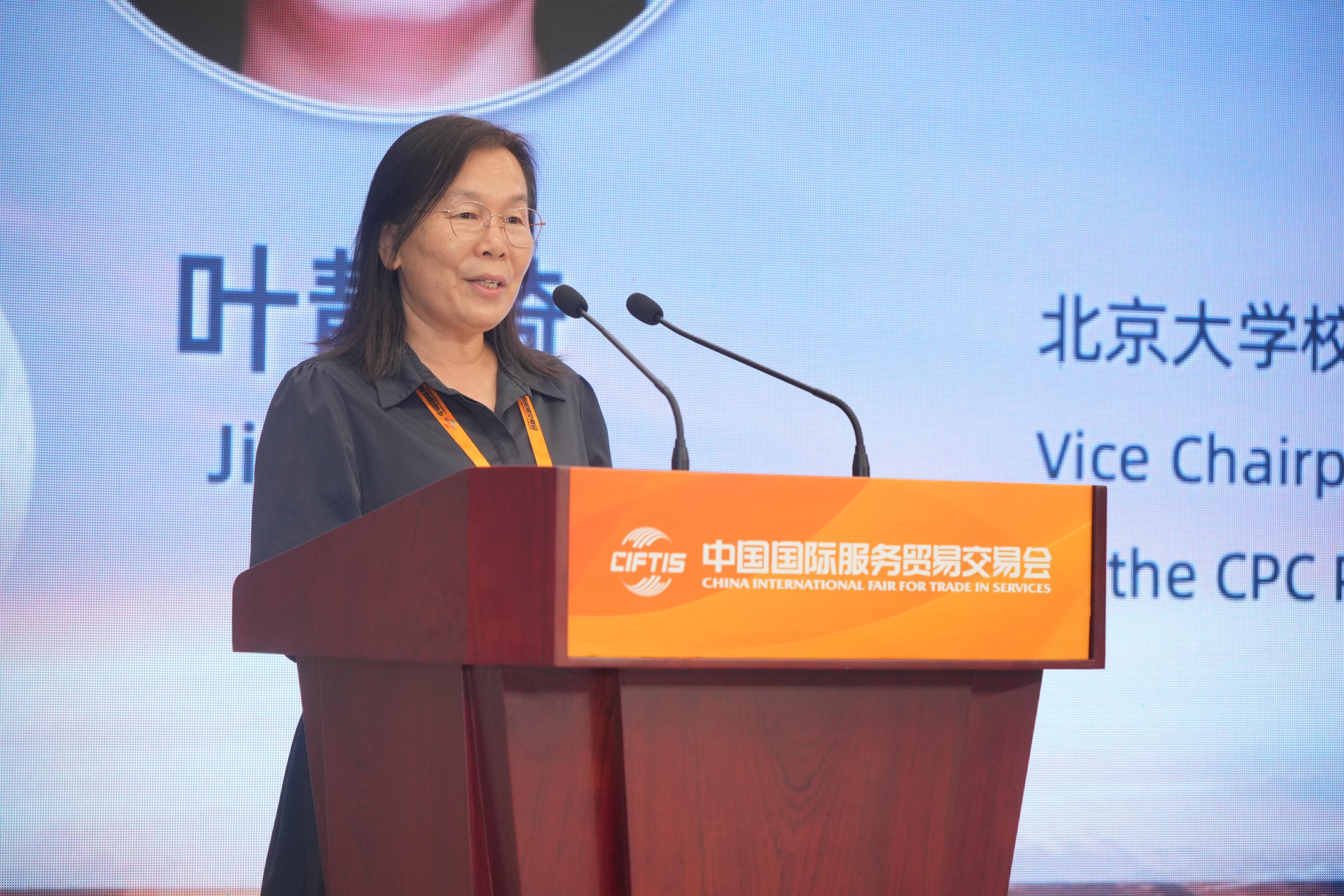
Ye Jingyi, Vice Chairperson of Peking University's Council and former Party Secretary of the university, noted in her opening address that smart cities and space exploration have become strategic areas influencing the global technological revolution and industrial transformation. She explained that their deep integration and Earth–space collaboration will profoundly reshape global development governance systems and the new forms of human civilization. Ye highlighted Peking University's active participation in national strategies such as Digital China and the building of a strong aerospace nation, providing practical pathways to improve urban public services and digital governance, and supporting national space strategies and sustainable human development. The Institute for Global Cooperation and Understanding serves as a bridge and platform, having jointly published original reports—including the "2024 BRICS Smart Cities Ranking" and the "2024 Arab States Smart Cities Ranking"—with Institute for Urban Internationalization Studies of Zhejiang International Studies University, fostering in-depth academic discussion on intelligent urban transformation. She encouraged participants to exchange insights, share frontier perspectives, and contribute to enhancing global governance and human development.
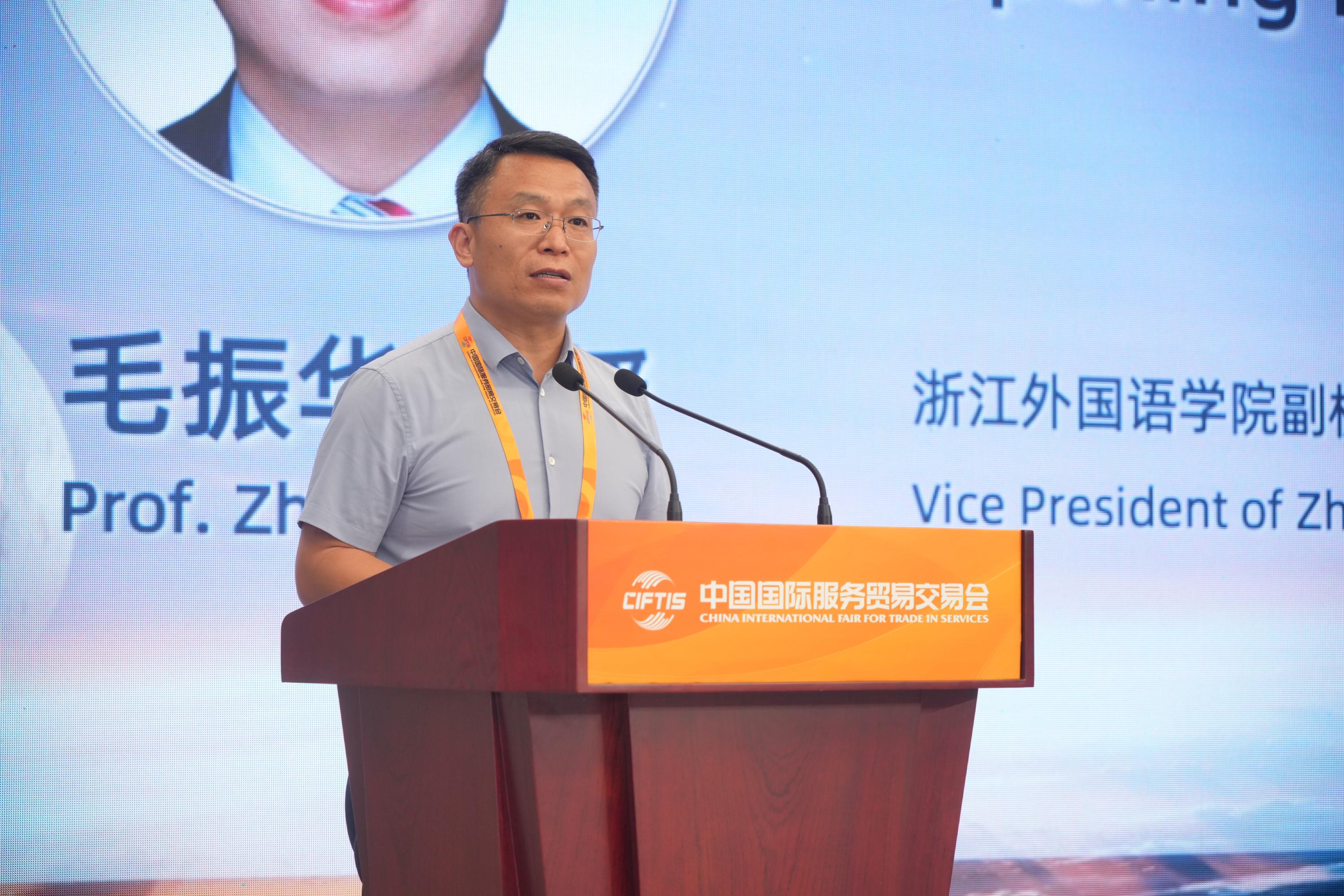
Mao Zhenhua, Vice President of Zhejiang International Studies University, remarked that the BRICS Smart Cities Ranking and Space Infrastructure Assessment represent high-level public goods provided jointly by Beijing, Hangzhou, and Shenzhen to the international community. He emphasized that these initiatives embody China's global governance philosophy of "practicing multilateralism with an action-oriented approach." Mao also pointed out that "Earth–space collaboration" has become a central direction in the new phase of global technological competition and sustainable development, offering a model to address climate change and regional development imbalances. The reports provide strategic entry points for cities in Beijing, Hangzhou, Shenzhen, and other Asian regions to engage in international cooperation, guiding long-term, large-scale, and in-depth urban or national development.
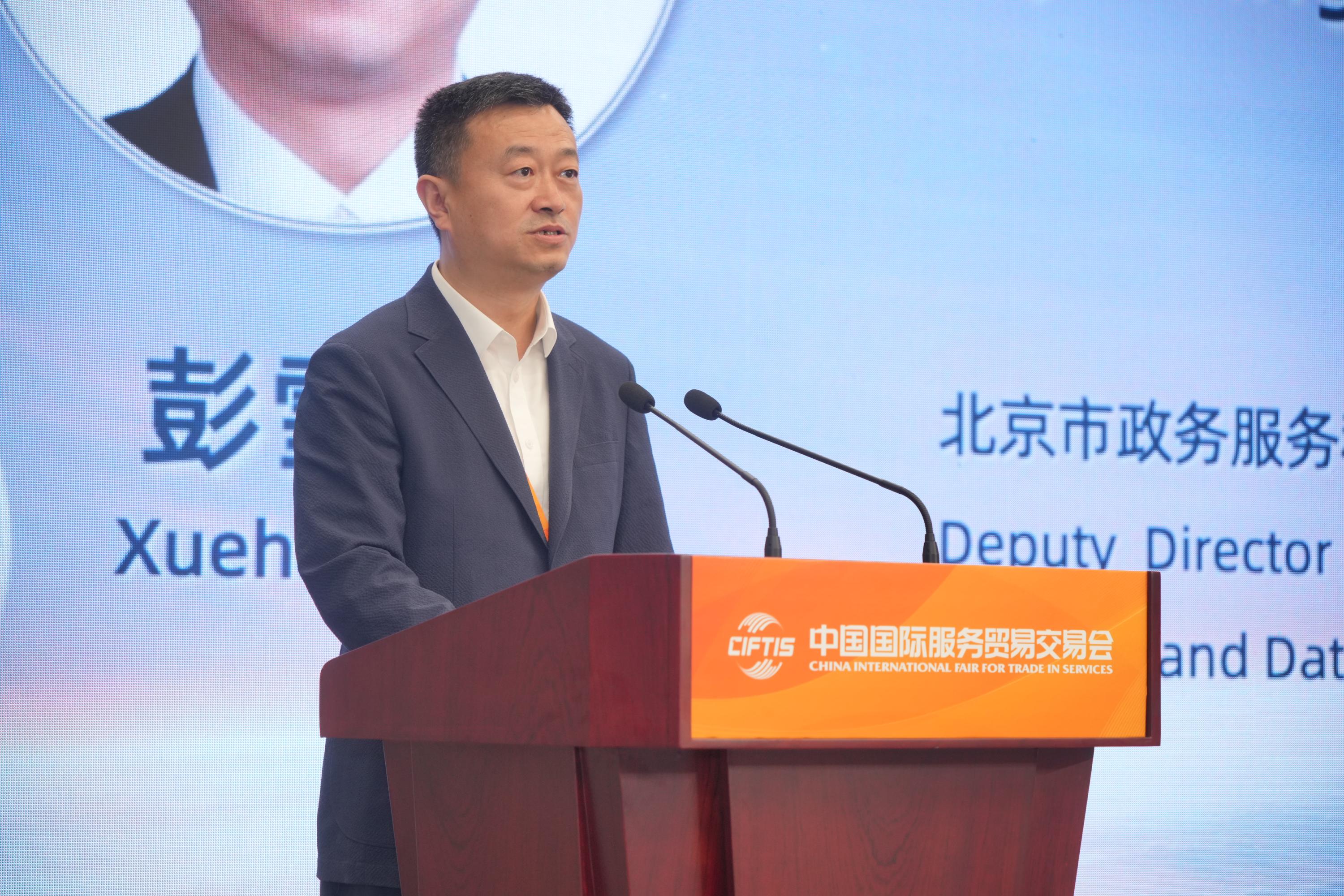
Peng Xuehai, Deputy Director of the Beijing Municipal Bureau of Government Services and Data Administration, outlined Beijing's progress in smart city construction, data element reform, artificial intelligence deployment, and the development of the space economy industrial chain. He emphasized that Beijing is building an integrated Earth–space intelligent infrastructure system. The concept of "Earth–space collaboration" strengthens China’s technological, industrial, and international governance capabilities in frontier fields such as smart cities and space infrastructure. Peng expressed Beijing's intention to collaborate with global partners to promote policy exchange, technological cooperation, and joint project development, thereby sharing the opportunities presented by digital transformation and space exploration.
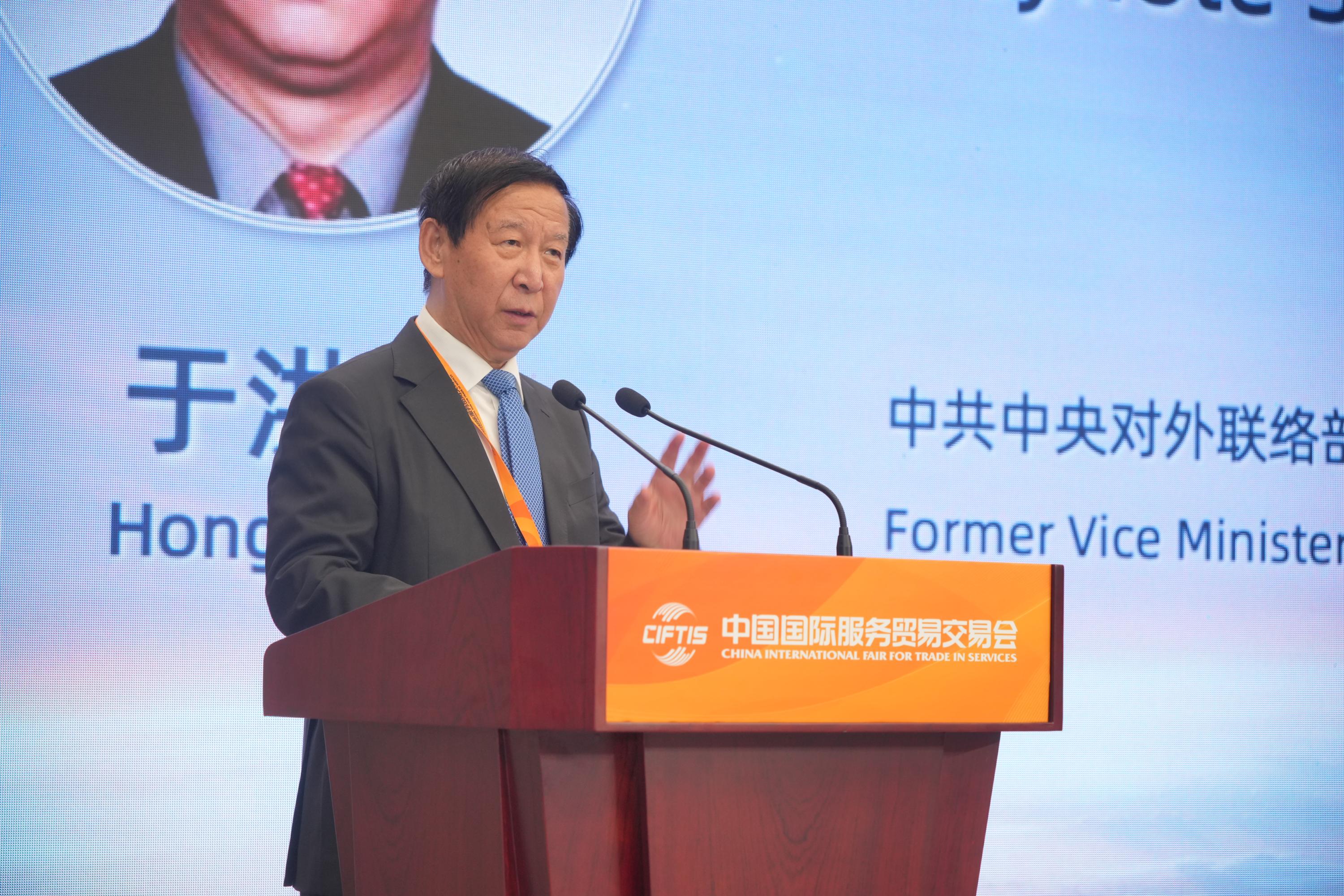
During the keynote session, Yu Hongjun, former Vice Minister of the International Department of the Central Committee of the Communist Party of China, analyzed current global economic trends and China’s external economic relations. He argued that the U.S.-initiated tariff wars have disrupted the global trade order, with outcomes still to be determined. Yu affirmed China’s confidence and capability in responding to tariff threats while maintaining principled and responsible engagement. He underscored that China and the United States are the two engines of the world economy, and global challenges are difficult to resolve without the participation of both countries. He concluded that China–U.S. economic and trade relations should be approached with openness, inclusivity, and constructiveness, supporting the development of an open Chinese economy and an open world economy.
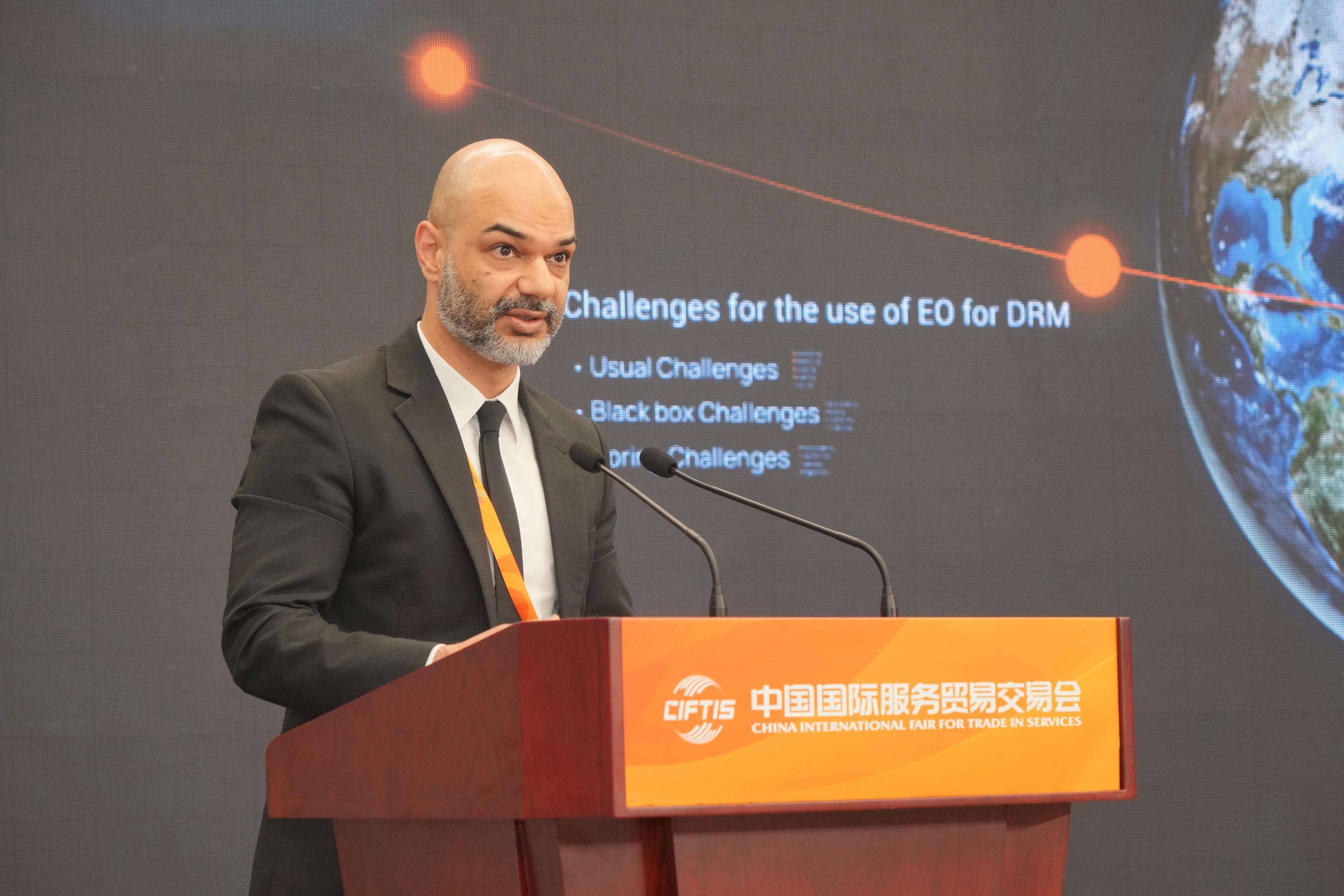
Hamid Mehmood, Director of the Beijing Office of the United Nations Office for Outer Space Affairs and the UN Disaster Management and Emergency Response Space-Based Information Platform, highlighted that the challenge is not a shortage of data but the absence of effective response and decision-making mechanisms to address climate change and related disasters. He stressed that advancements in geographic artificial intelligence, Earth observation data, surveying, mapping, and low-altitude economy provide opportunities to convert current challenges into future advantages. The Earth–space collaboration system, he noted, will enable a governance framework that integrates terrestrial and extraterrestrial domains.
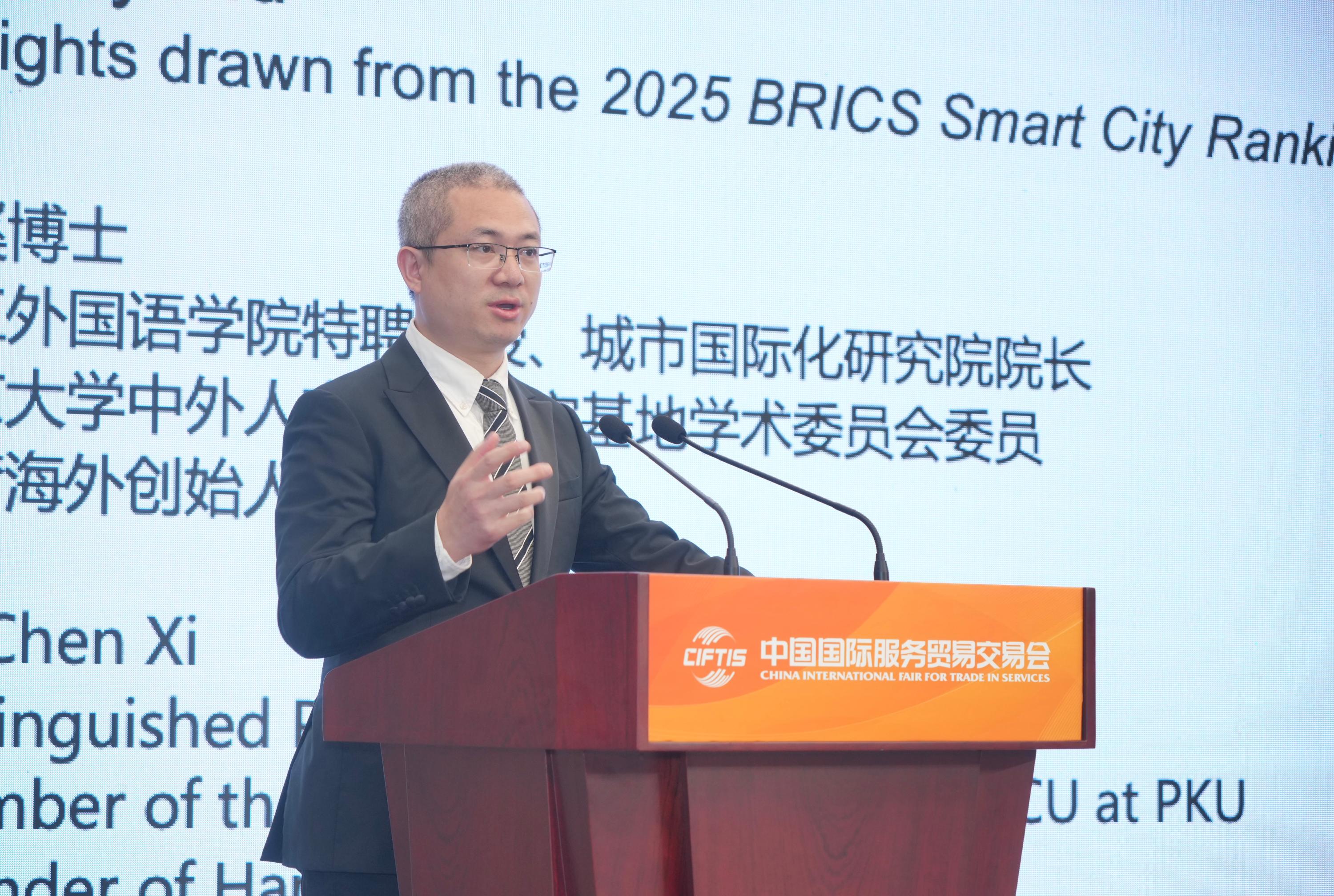
Professor Chen Xi, Distinguished Professor at Zhejiang International Studies University, Director of the Institute for Urban Internationalization, and founder of Harbor Overseas, presented the "2025 BRICS Smart Cities Ranking" and the "2025 Global Space Infrastructure Review," the core outcomes of the forum.
The "2025 BRICS Smart Cities Ranking" evaluated 238 BRICS and global benchmark cities. Chinese cities, including Beijing, Shanghai, Hangzhou, and Shenzhen, ranked in the top 5%, alongside New York, Munich, Chicago, Paris, London, San Francisco, and Singapore, demonstrating China’s leading position in smart city development. The “regional integration oriented” evaluation system covers communication, transportation, energy, water ecology, public health, urban emergency management, government services, and digital society, providing actionable guidance for global smart city development from 2025 to 2035.
The "2025 Global Space Infrastructure Review," the first global report assessing potential pathways for extraterrestrial human civilization based on aerospace technology, examined 43 economies using a system-oriented evaluation across survival, propulsion, transportation, energy, communication, production, and governance. The assessment ranked the United States, China, and Russia as the top three, reflecting a "China–U.S. dual leadership" pattern, offering a strategic framework for human space exploration from 2035 to 2050.
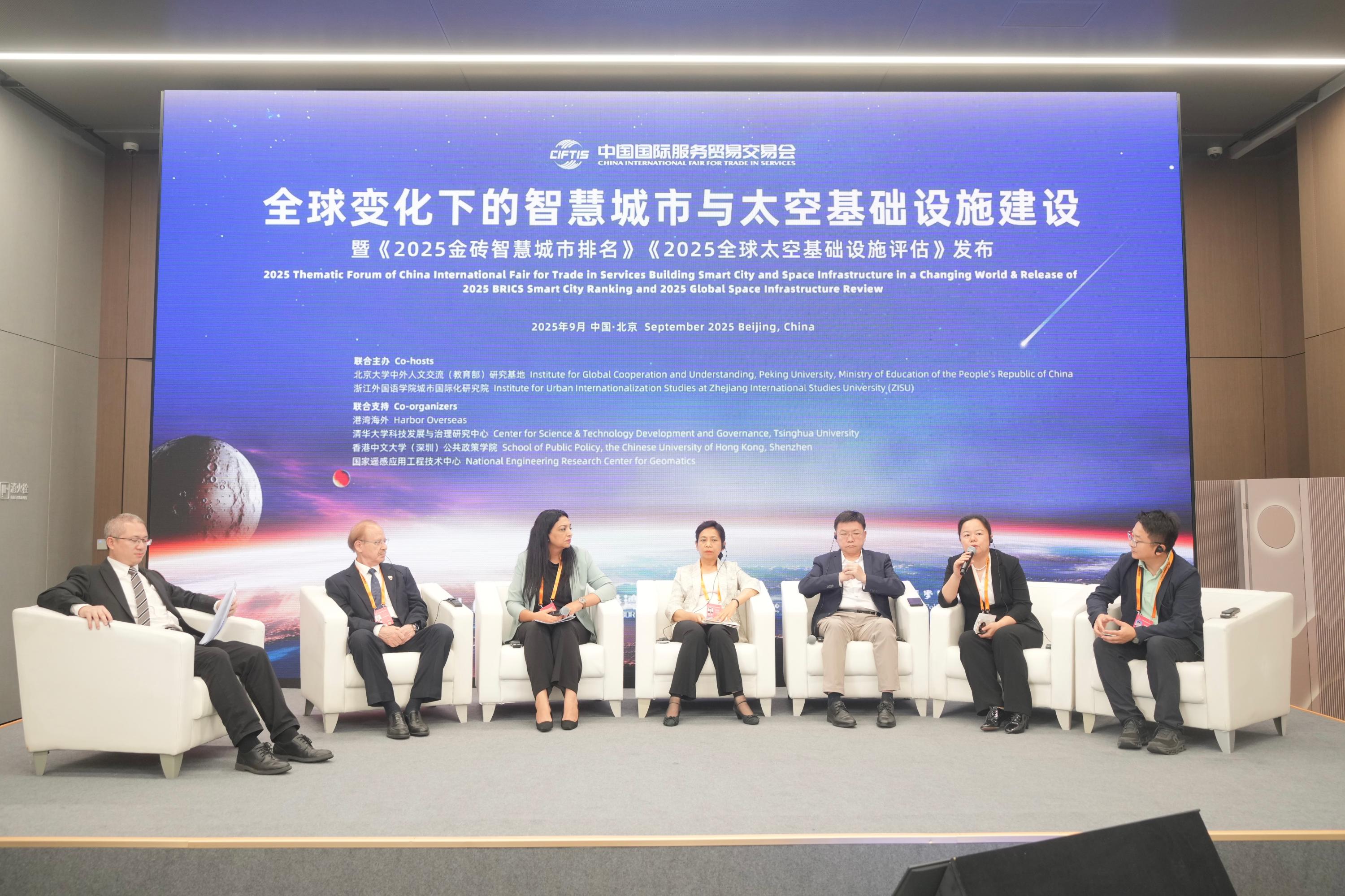
The first discussion session, "Smart Cities and Regional Integration, Space Infrastructure and Interstellar Connectivity," chaired by Professor Chen Xi, featured presentations by Mohamed G. Shaikho, Ambassador of Bahrain to China, on Bahrain's smart city achievements, and Rim Ayadi Ep Mahmoudi, Minister-Counselor of Tunisia in China, who emphasized smart city transformation as a national strategic priority. Li Yuan, Director of the Informatization Research Institute at the Ministry of Industry and Information Technology, highlighted China's approach to smart city development and the importance of international cooperation mechanisms.
Other notable speakers included Wang Dacheng, Deputy Secretary and Researcher at the National Remote Sensing Application Engineering Technology Center; Cheng Chengqi, Director of Peking University’s Aerospace Information Engineering Research Center and Chief Expert of the 973 Program; and Zhao Wenbo, Deputy Chief Designer of the National High-Resolution Earth Observation System at the National Space Administration. They shared insights on space technology, infrastructure, and international collaboration to support smart city development worldwide.
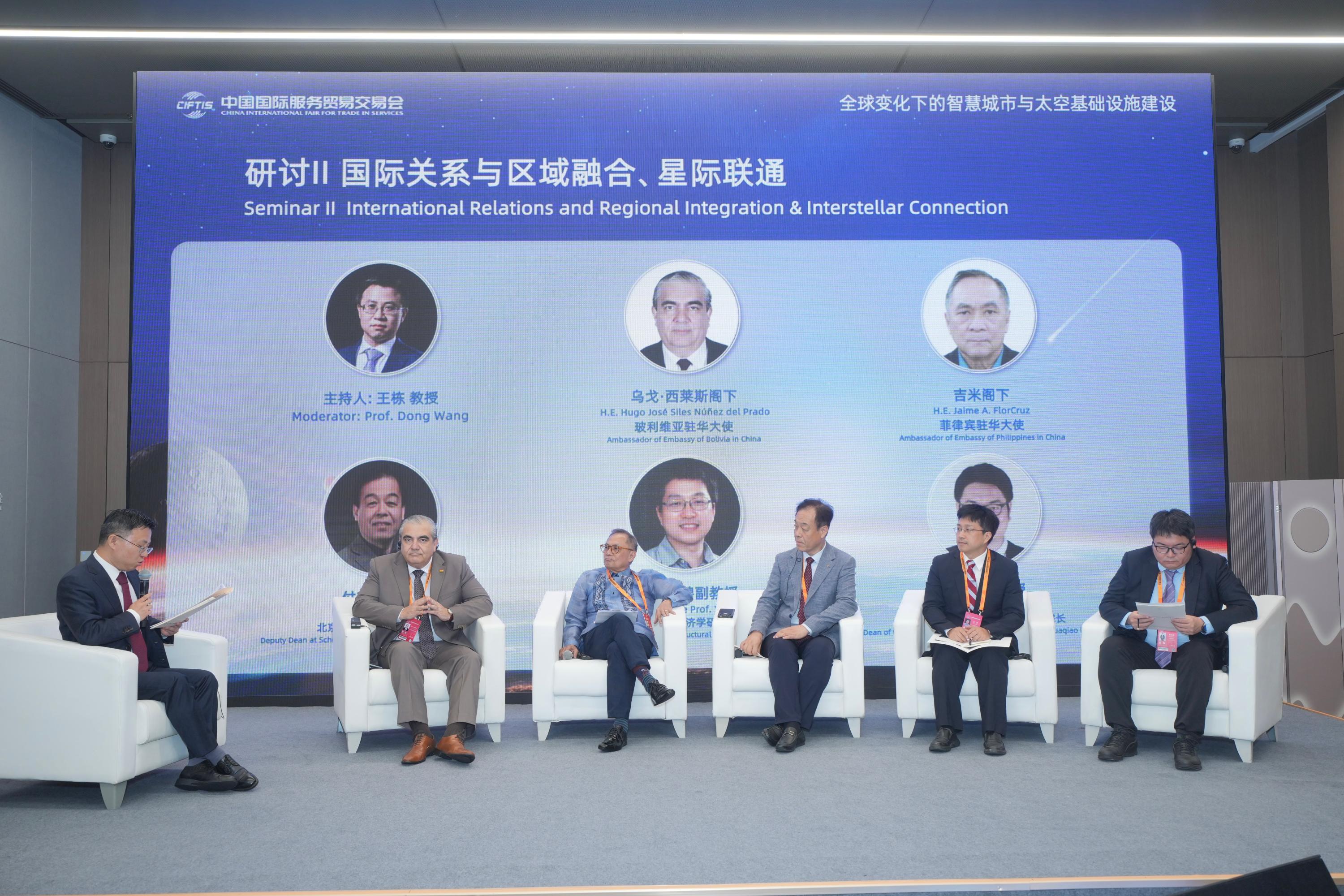
The second discussion session, "International Relations and Regional Integration & Interstellar Connection," chaired by Professor Wang Dong, included Hugo José Siles Núñez del Prado, Ambassador of Bolivia to China, who cited China–Bolivia satellite cooperation as an example of how developing countries can advance through technology assistance and cooperation platforms. Jaime A. FlorCruz, Ambassador of the Philippines to China, proposed building a "smart city negative list" to prevent pollution, insecurity, and inefficiency, advocating regional collaboration and innovation sharing to create sustainable, people-centered cities.
Other participants emphasized service-oriented approaches as central to smart cities, the relevance of China’s infrastructure experience from reform and opening up and the Belt and Road Initiative, and the integration of smart city and interstellar connectivity research into global governance and regional studies.
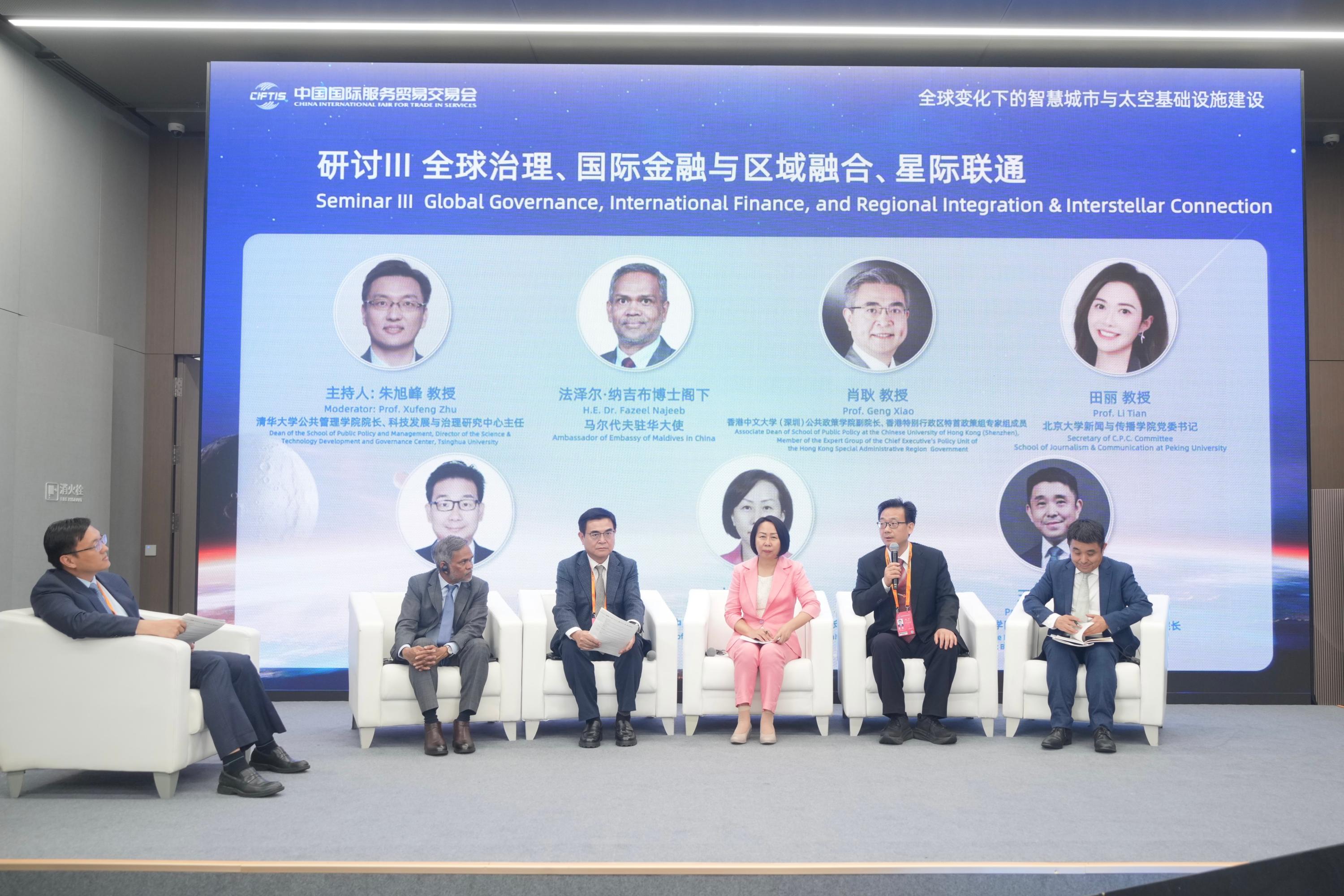
The third discussion session, “Global Governance, International Finance and Regional Integration, Interstellar Connectivity,” was chaired by Professor Zhu Xufeng of Tsinghua University. Fazeel Najeeb, Ambassador of the Maldives to China, noted that China has become a vital partner for developing nations in economic, technological, and knowledge domains. Professor Wen Chunying from Communication University of China highlighted the trends toward diversified communication actors and algorithmic content in global governance. She proposed the concept of “governance as communication,” urging the international community to shift from value export to “joint problem-solving.” Professor Xiao Geng, Vice Dean of the School of Public Policy at CUHK, Shenzhen, highlighted that global governance is moving toward diversified narrative actors and algorithmic content, calling for problem-solving rather than value export. Yang Dong, Dean of Renmin University's Law School, introduced China's first foreign-related legal large language model to facilitate connectivity along the Belt and Road and foster international legal cooperation. Professor Wang Zhanpeng of Beijing Foreign Studies University advocated for the new discipline of Area Studies to synergize with global governance research, proposing tailored "one country, one policy" approaches to foster their integration, with smart city and space infrastructure studies serving as a potential model.
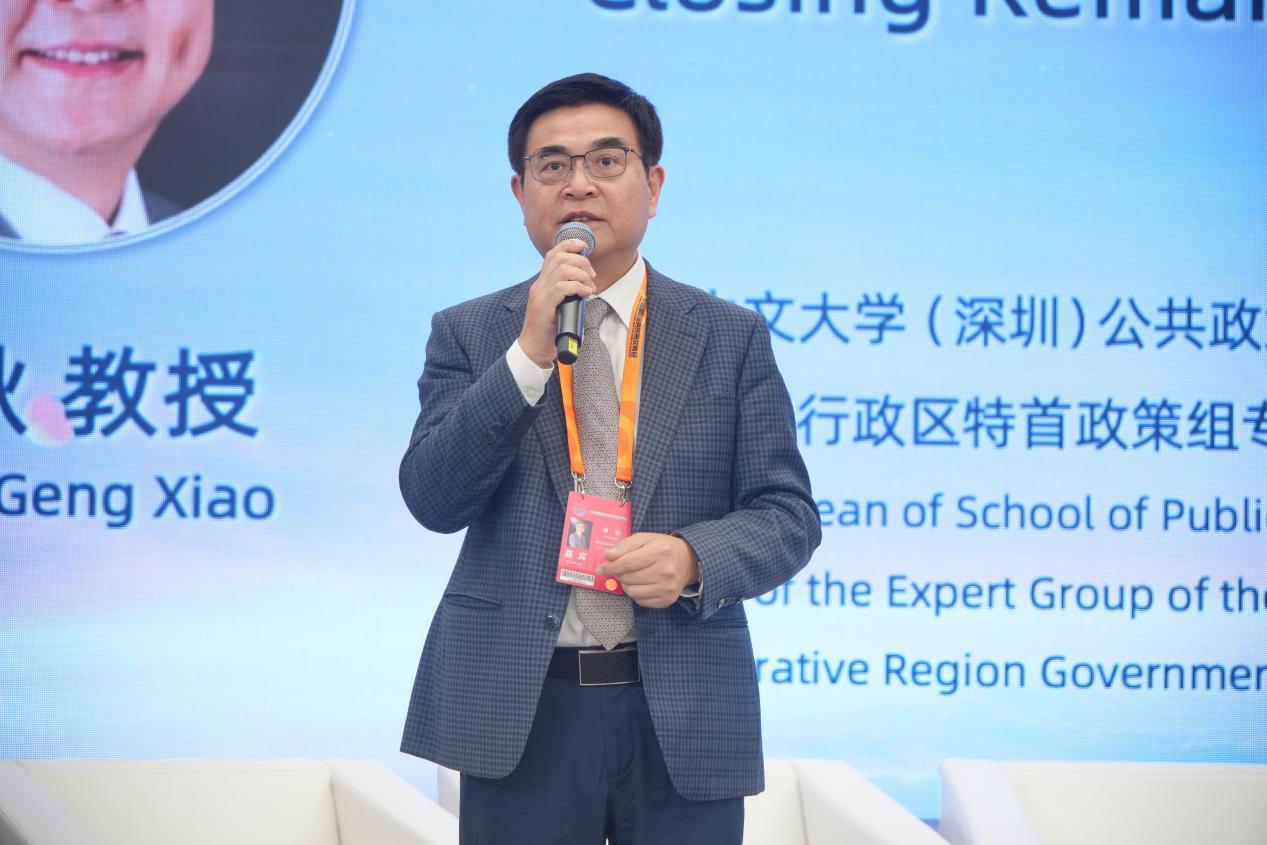
At the closing ceremony, Professor Xiao Geng emphasized the forum’s foresight in combining space and smart cities, advocating for global cooperation to address climate change and other shared challenges. The technical system of "Earth–space collaboration" presented during the forum is expected to advance integrated governance of Earth and outer space. The released reports reflect China’s commitment to global technological governance and provide implementation pathways and development paradigms for BRICS and Global South countries.
These initiatives will guide global policy makers, research institutions, and enterprises in planning, constructing, investing in, and operating major future projects, reinforcing Beijing’s role as a hub for global governance thought leadership and accelerating the internationalization, specialization, and full openness of CIFTIS and Beijing’s global diplomatic positioning.
